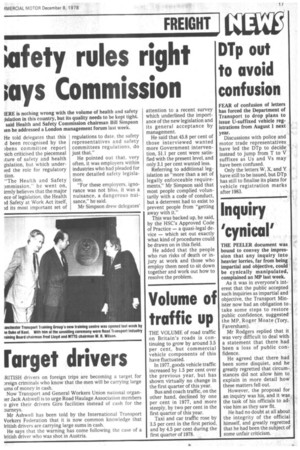;eddy rules right ;ays Commission
Page 19

If you've noticed an error in this article please click here to report it so we can fix it.
[ERE is nothing wrong with the volume of health and safety pislation in this country, but its quality needs to be kept tight. said Health and Safety Commission chairman Bill Simpson ien he addressed a London management forum last week.
He told delegates that this .d been recognised by the )bens committee report lich criticised the piecemeal tture of safety and health gislation, but which underfed the role for regulatory tion.
"The Health and Safety ommission," he went on, irmly believes that the major ece of legislation, the Health id Safety at Work Act itself, id its most important set of regulations to date, the safety representatives and safety committees regulations, do just that."
He pointed out that, very often, it was employers within industries who had pleaded for more detailed safety legislation.
"For these employers, ignorance was not bliss, it was a nuisance, a dangerous nuisance," he said.
Mr Simpson drew delegates' attention to a recent survey which underlined the importance of the new legislation and its general acceptance by management.
He said that 45.8 per cent of those interviewed wanted more Government intervention, 51.1 per cent were satisfied with the present level, and only 3.1 per cent wanted less.
Referring to additional legislation as "more than a set of legally enforceable requirements," Mr Simpson said that most people complied voluntarily with a code of conduct, but a deterrent had to exist to prevent people from "getting away with it."
This was backed up, he said, by the HSC's Approved Code of Practice — a quasi-legal device — which set out exactly what kind of procedures could be drawn on in this field.
He added that the people who run risks of death or injury at work and those who employ them need to sit down together and work out how to resolve the problem.
































































































































